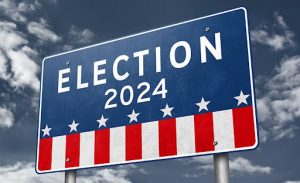United States President Joe Biden, on Wednesday, hinted at taking executive action on issues related to police reforms in the country as the Congress failed to deliver any substantial outcomes, according to a press release from the White House.
Biden also laid special focus on the George Floyd Justice in Policing Act of 2020, which got a nod from the United States House of Representatives. The bill, which is officially named HR 7120, addresses ” a wide range of policies and issues regarding policing practices and law enforcement accountability”, according to the US Congress website.
Also Read: Death, protest, conviction: Timeline of events since George Floyd’s death
“It increases accountability for law enforcement misconduct, restricts the use of certain policing practices, enhances transparency and data collection, and establishes best practices and training requirements”, the Congress website added.
The statement said that Biden “urged the Senate to join in passing meaningful police reform legislation that includes accountability when law enforcement officers violate their oaths.”
Biden said that the path forward would be “executive actions” that would be taken after consulting major stakeholders like law enforcement bodies, civil rights communities and the families of victims.
The executive actions may be taken “to live up to the American ideal of equal justice under law“, the White House statement read.
The statement added that Biden’s administration has coordinated with federal bodies like the United States Department of Justice to take important steps like unveiling “new policies on chokeholds, no-knock warrants, and body cameras.”
Also Read: Will US justice system be tougher on police after George Floyd case?
According to the US Congress website, the George Floyd Justice in Policing Act of 2020 brings in the following reforms:
1) Lowers the criminal intent standard—from willful to knowing or reckless—to convict a law enforcement officer for misconduct in a federal prosecution
2) Limits qualified immunity as a defense to liability in a private civil action against a law enforcement officer
3) Grants administrative subpoena power to the DOJ in pattern-or-practice investigations.





